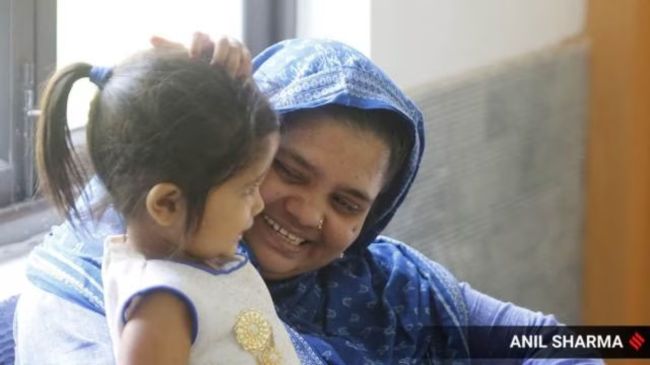Opinion From the Opinions Editor | Bilkis Bano case: SC shows hallmark of enlightened judiciary is in correcting itself
In Bilkis Bano Case, SC displays hallmark of enlightened judiciary.
 In other words, the convicts can appeal to the Maharashtra government -- where the apex court had transferred some of the cases related to the Gujarat violence of 2002, including that of Bilkis Bano -- for relief. (Express photo)
In other words, the convicts can appeal to the Maharashtra government -- where the apex court had transferred some of the cases related to the Gujarat violence of 2002, including that of Bilkis Bano -- for relief. (Express photo) Dear Readers,
“The finest hour of the rule of law is when law disciplines life and matches promise with performance”. The Supreme Court cited these words of the noted jurist and its former judge, the late Justice V R Krishna Iyer, while quashing the Gujarat government’s decision to grant remission to the convicts in the Bilkis Bano case. The verdict, in the words of Bilkis Bano, “lifted a stone of the size of the mountain”.
To be sure, the court was correcting itself. As this paper’s editorial (“Doing the right thing”, IE, January 10) pointed out, “It did not ask the probing questions that it should have, when it was petitioned by one of the convicts in 2022. If it had, it would not have to now set aside its own verdict that paved the way for the Gujarat government’s remission to the convicts”. The ability to rectify errors is one of the hallmarks of an enlightened judiciary, and the Indian system has more often than not passed this litmus test. As the editorial pointed out, “the SC has ensured that the Bilkis Bano case will be seen not just as emblematic of the horrific communal violence that swept Gujarat in 2002, but also of the highest court’s efforts in the aftermath to guard against a wayward justice”. Moreover as senior advocate Indira Jaising pointed out (Justice redone, IE January 9), “We have seen in recent times an abdication of the power of judicial review of the Supreme Court. In contrast, this judgment is a reassertion of the SC’s lost power.
Of course, the last word may not have been heard in this case. The Court has scrapped the remission on the grounds that it can only be granted by the “appropriate” government within whose territorial jurisdiction the conviction took place, not where the crime happened. In other words, the convicts can appeal to the Maharashtra government — where the apex court had transferred some of the cases related to the Gujarat violence of 2002, including that of Bilkis Bano — for relief.
The squashing of the remission is, however, not purely on technical grounds. Justice B V Nagarathna, whose bench delivered the seminal verdict, aptly located it in the tradition that places the rule of law as amongst the fundamental principles of democracy. “Rule of law means whenever and wherever the state fails to perform its duty, the court would step in… those concerned with the rule of law must remain unmindful and unruffled by the ripples caused by it,” she said. Therefore, as Jaising argues, “the Gujarat government had ‘usurped a power’ which it did not possess to grant remission to the 11 convicted persons”.
“In requesting the SC for relief these 11 had suppressed the fact from the Court that prior to the grant of its judgment, a bench of the Gujarat High Court had held that the appropriate government was the state of Maharashtra. They also suppressed the fact that they had already appealed to the state of Maharashtra and that the trial court had recommended rejecting the grant of remission, on the ground that what had happened was a crime against humanity,” she argues.
The verdict was not merely on procedural grounds for another reason. The Court also held that the state of Gujarat had contended that it was the appropriate government and yet it did not file a review against the previous decision. That’s why it pulled up the Gujarat government for being complicit with the petitioners.
The case, as legal scholar Snehal Dhote points out, “must act as a springboard to reflect on deeper questions about the state remission policies in India that the Court did not have a chance to consider. Clear and transparent remission procedures along with appropriate substantive considerations will also help prevent the kind of misuse we saw in Bilkis Bano’s case”.
In the Bilkis Bano verdict, the Court said that there are competing interests — that of the rights of the victim or her family to justice, and that of a convict’s claim to a second chance. The Bench said that in prior judgments, the top court has expressed scepticism over the latter, particularly if the offence committed is a heinous one. It has, however, left room for the 11 to approach the Maharashtra government for remission.
After the reprieve given to them by the Gujarat government in August 2022, the 11 were accorded a reception befitting heroes. Maharashtra Deputy CM Devendra Fadnavis has rightly admonished this approach. “A convict is a convict,” he has said. “This words will ring loud than ever,” as this newspaper’s editorial points out, “if and when his government receives a fresh remission notice”.
Till next week,
Kaushik Das Gupta
Must Read Opinions from the Week:
How will the Telecommunication Act impact competition, tech neutrality in India? (Mansi Kedia and Rohit Prasad, January 12)
Five reasons why INDIA leaders should oppose BJP’s Ram Mandir politics (Aakash Joshi, January 13)
From America to India, the free speech challenge on campus (Sonalde Desai, January 13)
Ustad Rashid Khan’s legacy of perfection (Amit Chaudhuri, January 11)
Cervical cancer vaccine drive: A healthy new year (Editorial, January 13)



